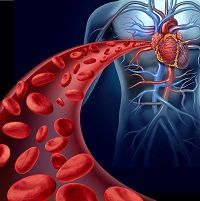Article
Breakthrough Anticoagulant Reversal Agent May Soon Be Available
Author(s):
Andexanet alfa is designed to reverse the anticoagulant activity of both direct and indirect Factor Xa inhibitors.

Portola Pharmaceuticals has asked the US Food and Drug Administration (FDA) for permission to begin selling andexanet alfa, a biological agent that reverses anticoagulation caused by the novel oral anticoagulants rivaroxaban (Xarelto) and apixaban (Eliquis).
Â
If approved, the new drug would eliminate 1 of the major advantages (other than price) that warfarin enjoys over the newer anticoagulants in treating patients with atrial fibrillation (AF). All 3 of the blood-thinning medications increase the risk of serious bleeds, but, for now, only warfarin comes with an antidote that immediately reverses its blood-thinning effects when such bleeds occur.
Â
Trials of rivaroxaban and apixaban, along with subsequent analyses, have generally found that, despite the lack of an antidote, they subject users to fewer serious bleeds and fewer negative outcomes associated with serious bleeds than warfarin. That said, patients who use either of the new Factor Xa inhibitors face a significant risk of bleeding. Each year, 1% to 4% of patients treated with Factor Xa inhibitors experience major bleeding, and an additional 1% require emergency surgery. During the 12 months ended April 2015, U.S. hospitals admitted more than 50,000 patients treated with rivaroxaban or apixaban due to bleeding.
Â
“Andexanet alfa, an investigational drug, is a modified human Factor Xa molecule that acts as a decoy to target and sequester with high specificity both oral and injectable Factor Xa inhibitors in the blood. Once bound, the Factor Xa inhibitors are unable to bind to and inhibit native Factor Xa, thus allowing for the restoration of normal hemostatic processes,†wrote officials from Portola Pharmaceuticals in a press release issued to announce the FDA submission. “Andexanet alfa is the only compound being studied as a reversal agent for Factor Xa inhibitors that directly and specifically corrects anti-Factor Xa activity – the anticoagulant mechanism of these agents.â€
Â
Portola’s FDA application uses data from a phase III study published last fall in the New England Journal of Medicine and a single-arm, open-label confirmatory study in real-world patients who presented with a major bleed. Portola is still evaluating the results of that later trial, but the investigators who ran the phase III trial found andexanet to be effective for its intended purpose.
Â
Among apixaban-treated participants in that study, anti–factor Xa activity was reduced by 94% among the 24 patients who received an andexanet bolus but only 21% among the 9 patients who received placebo (P<0.001). Unbound apixaban concentration was reduced by 9.3 ng/ml with andexanet versus 1.9 ng/ml with placebo (P<0.001). Thrombin generation was fully restored within 2 to 5 minutes in 100% of the andexanet patients versus 11% of the placebo patients (P<0.001).
Â
Among the rivaroxaban-treated participants, anti–factor Xa activity was reduced by 92% among the 27 patients who received an andexanet bolus but only 18% among the 14 patients who received placebo (P<0.001). Unbound rivaroxaban concentration was reduced by 23.4 ng/ml in andexanet patients versus 4.2 ng/ml in placebo patients (P<0.001). Thrombin generation was fully restored in 96% of andexanet patients versus 7% of placebo patients (P<0.001).
Â
“Andexanet reversed the anticoagulant activity of apixaban and rivaroxaban in older healthy participants within minutes after administration and for the duration of infusion, without evidence of clinical toxic effects,†the trial authors concluded.





